
PUBLICATIONS CENTRE
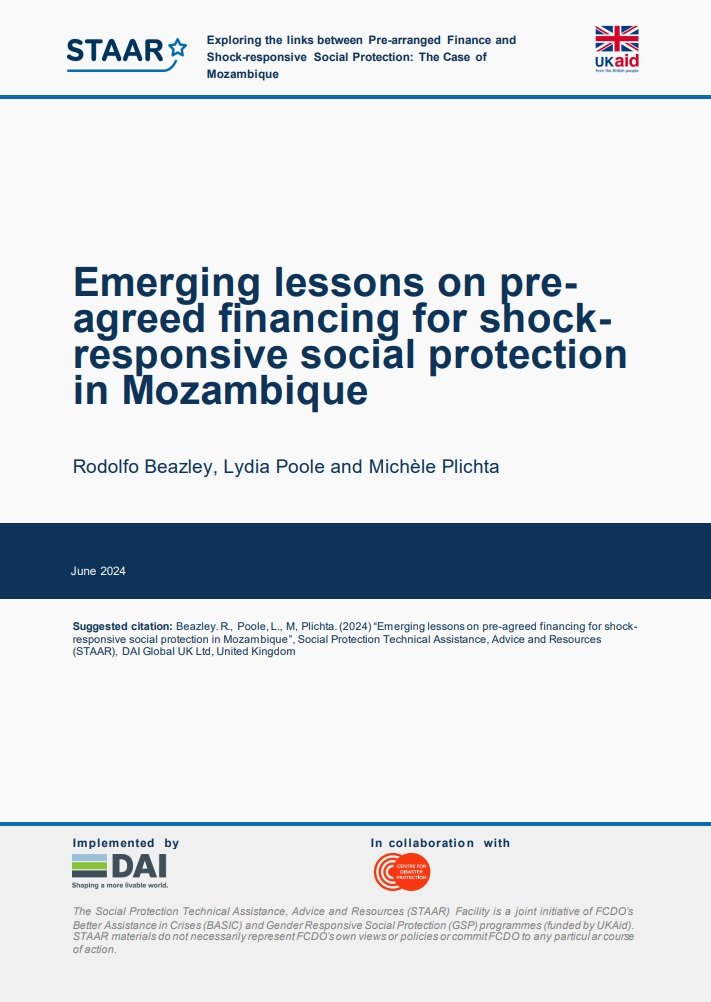
Emerging lessons on pre-agreed financing for shock-responsive social protection in Mozambique
This study, conducted by the Centre for Disaster Protection in collaboration with the Social Protection Technical Assistance, Advice, and Resources (STAAR) Facility, investigates the potential opportunities, benefits and risks when linking disaster risk financing (DRF) and shock-responsive social protection (SRSP) in Malawi. The report contributes to a broader study that includes research across three country case studies (Jamaica, Malawi, and Mozambique) to consider the opportunities, potential risks, and benefits of channelling disaster risk financing instruments through national social protection systems. The focus of this report is Mozambique.
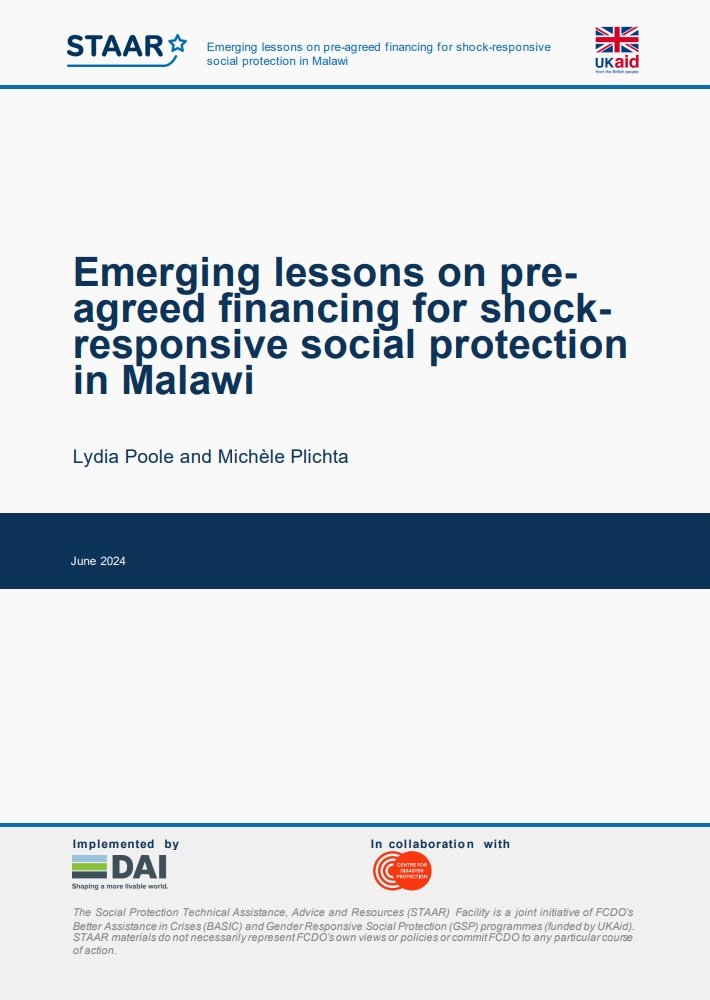
Emerging lessons on pre-agreed financing for shock-responsive social protection in Malawi
This study, conducted by the Centre for Disaster Protection in collaboration with the Social Protection Technical Assistance, Advice, and Resources (STAAR) Facility, investigates the potential opportunities, benefits and risks when linking disaster risk financing (DRF) and shock-responsive social protection (SRSP) in Malawi. The report contributes to a broader study that includes research across three country case studies (Jamaica, Malawi, and Mozambique) to consider the opportunities, potential risks, and benefits of channelling disaster risk financing instruments through national social protection systems. The focus of this report is Malawi.
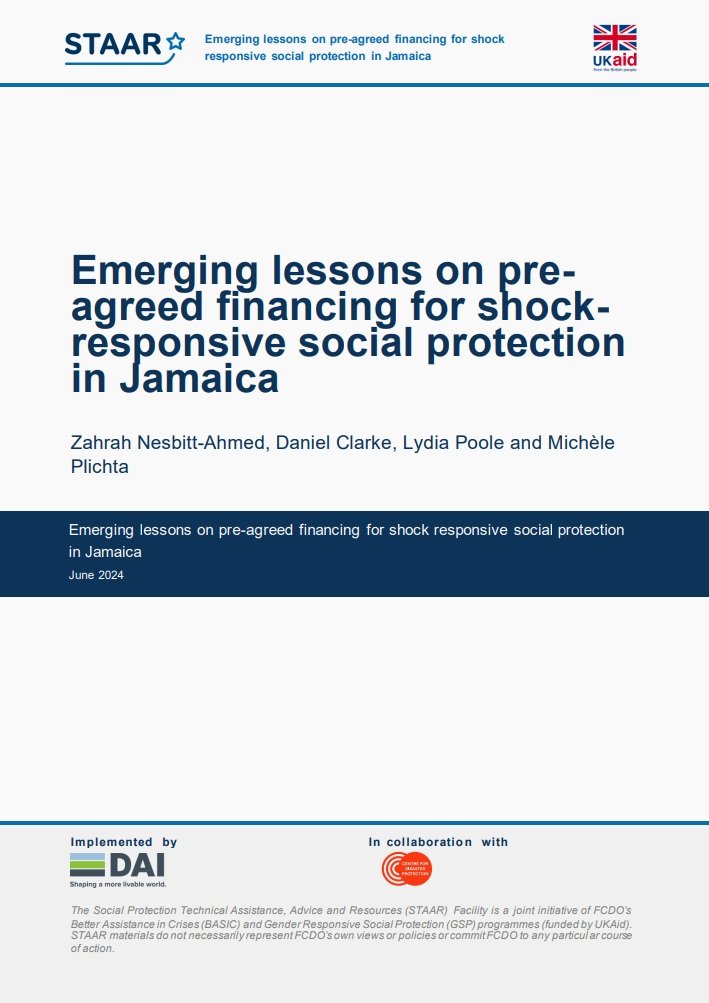
Emerging lessons on pre-agreed financing for shock-responsive social protection in Jamaica
This study, conducted by the Centre for Disaster Protection (hereafter, the Centre) in collaboration with the Social Protection Technical Assistance, Advice, and Resources (STAAR) Facility, investigates the potential opportunities, benefits and risks when linking disaster risk financing (DRF) and shock-responsive social protection (SRSP). The report contributes to a broader study that includes research across three country case studies (Jamaica, Malawi, and Mozambique) to consider the opportunities, potential risks, and benefits of channelling disaster risk financing instruments through national social protection systems. The focus of this report is Jamaica.
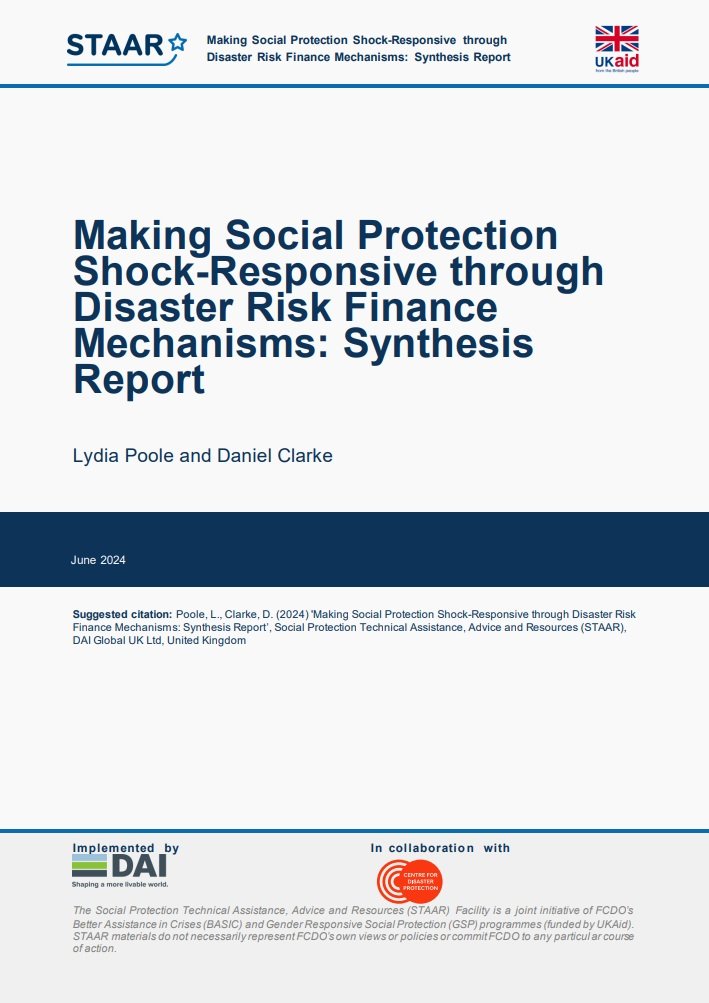
Making Social Protection Shock-Responsive through Disaster Risk Finance Mechanisms: Synthesis Report
This study, conducted in collaboration with the Social Protection Technical Assistance, Advice, and Resources (STAAR) Facility, addresses gaps in evidence on the potential to integrate disaster risk finance (DRF) and social protection systems. The research includes three case studies – Jamaica, Malawi and Mozambique. The study puts forward six lessons and 12 recommendations for donors interested in supporting this agenda.
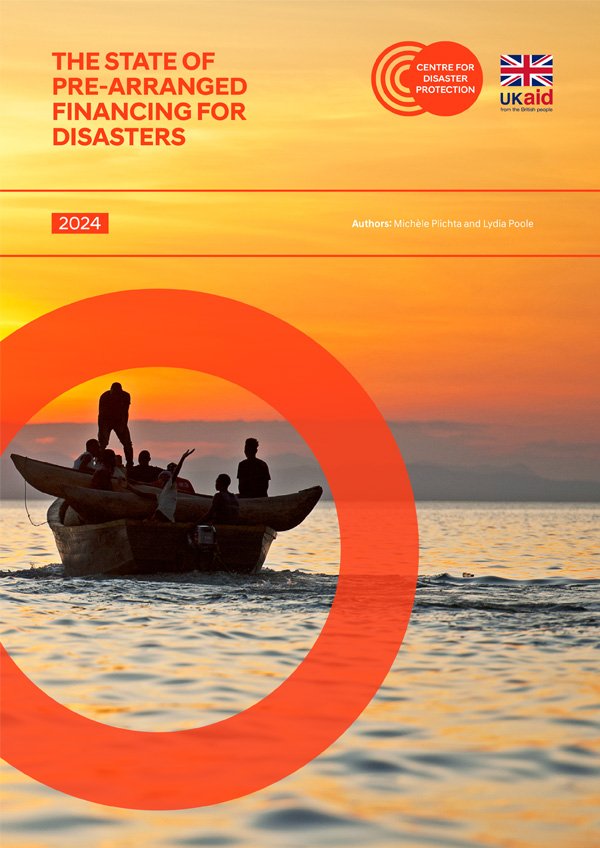
THE STATE OF PRE-ARRANGED FINANCING FOR DISASTERS 2024
The State of Pre-arranged Financing for Disasters 2024 is a unique source of data and analysis on the level of effort of international development donors to support a shift towards arranging financing for disasters, before shocks happen. In its second year, the Centre’s annual analysis of trends and patterns in international development financing for pre-arranged financing for disasters also presents the latest available data on coverage and payouts provided by these instruments.
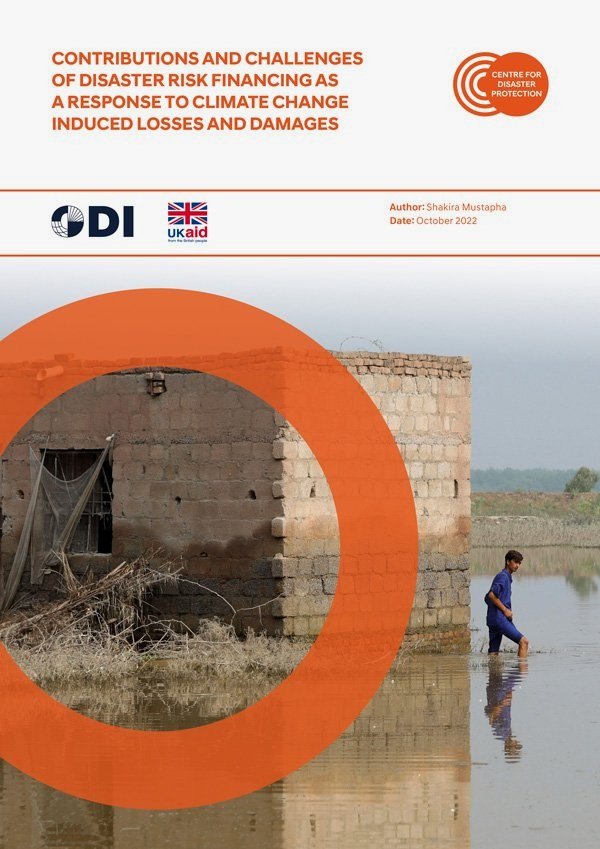
CONTRIBUTIONS AND CHALLENGES OF DISASTER RISK FINANCING AS A RESPONSE TO CLIMATE CHANGE INDUCED LOSSES AND DAMAGES
Human-induced climate change will continue to cause losses and damages, with vulnerable developing countries and communities that have contributed least to the climate crisis bearing the brunt of its consequences. Loss and Damage is the third pillar of the international climate regime in the 2015 Paris Agreement, alongside mitigation and adaptation.
In order to play a well-targeted and effective role, it is important to understand the applications and limits of Disaster Risk Finance as a response to climate-induced losses and damages. This paper explores how DRF instruments are being framed and understood within the panorama of Loss and Damage policy and finance agendas, highlighting areas of contention and sensitivity.
